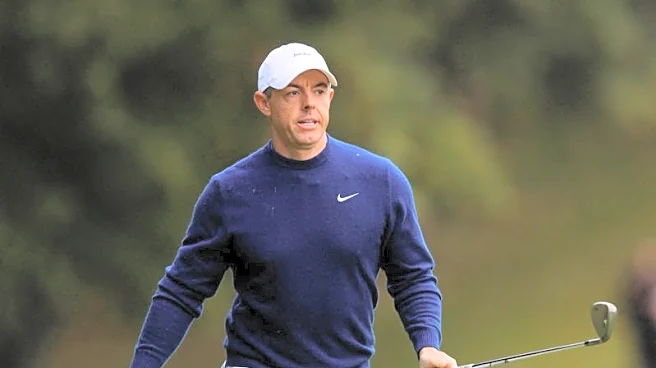What's Happening?
Boeing Co. has reached a settlement agreement with the US Justice Department, allowing it to avoid criminal charges related to two fatal 737 Max crashes. US District Judge Reed O’Connor approved the non-prosecution
agreement, which requires Boeing to pay $1.1 billion in fines and compensation to the families of crash victims. The crashes, involving Lion Air Flight 610 and Ethiopian Airlines Flight 302, were linked to a flawed flight control system, resulting in the deaths of 346 people. Despite opposition from some victims' families, the judge stated he lacked the authority to reject the agreement as prosecutors did not act in bad faith. Boeing will admit to conspiracy to obstruct the Federal Aviation Administration but will not plead guilty.
Why It's Important?
The settlement marks a significant step for Boeing in resolving legal challenges stemming from the 737 Max crashes, which severely impacted its reputation and finances. The agreement allows Boeing to focus on improving its safety, quality, and compliance programs, potentially restoring public trust in its operations. The decision also highlights the complexities of legal accountability in corporate misconduct cases, where financial settlements can sometimes overshadow demands for harsher penalties. The outcome may influence future regulatory and legal approaches to corporate accountability in the aviation industry.
What's Next?
Boeing is required to implement measures to enhance its compliance and safety programs, including hiring an independent compliance consultant to oversee these efforts. The consultant will report findings directly to the government, ensuring Boeing adheres to its commitments. Additionally, attorney Paul Cassell, representing some victims' families, plans to file an emergency motion for the 5th US Circuit Court of Appeals to review the judge's decision, potentially leading to further legal proceedings. Boeing's ongoing efforts to improve operational standards and accountability will be closely monitored by stakeholders.
Beyond the Headlines
The settlement raises questions about the balance between financial penalties and genuine accountability in corporate misconduct cases. It underscores the ethical considerations in ensuring justice for victims' families while maintaining corporate integrity. The case may prompt discussions on the role of diversity, equity, and inclusion policies in corporate governance, as highlighted by Judge O’Connor's previous rejection of a proposal based on these criteria.











